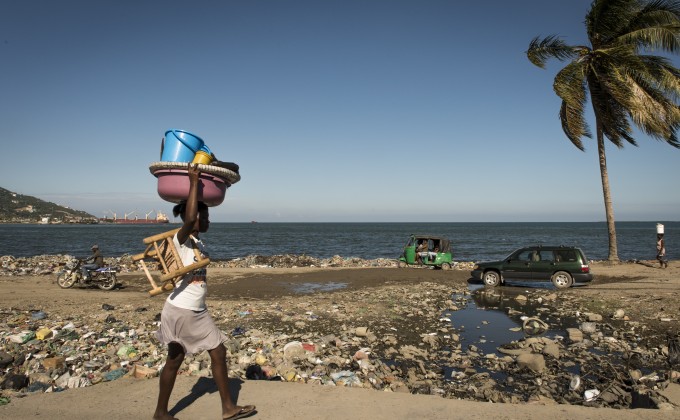
The daily life of the inhabitants has become extremely difficult, with thousands of families forced to flee their homes and a wave of kidnappings that shows no signs of abating. The international airport, usually bustling, has been silent since its closure on March 4, 2024. Despite the sustained efforts of the Haitian National Police, the situation remains out of control. Repeated assaults against the national palace and the takeover of prison facilities have led to the release of thousands of detainees, including notorious criminals.
In response to this situation, the government has declared a state of emergency and imposed a curfew in an attempt to restore calm. However, even in this difficult context, hope remains. The international community, led by CARICOM and supported by the United States and other friendly countries, is working to facilitate a stable political transition until the next general elections.
While CECI teams in Port-au-Prince continue to work remotely, our regional offices in the North, Centre, Nippes, South, and Grand'Anse remain active. In these relatively calm regions, they ensure the delivery of our projects and provide vital and essential support to local communities. We are aware of the logistical challenges we face, but our determination remains intact. We are enhancing the security of our personnel and assets while maintaining constant vigilance in the field.
In this difficult period, we focus on two essential priorities:
The alarming situation of food insecurity is at the heart of CECI's concerns. According to the latest data from the National Food Security Coordination, nearly half of the Haitian population, approximately 5 million people, is experiencing food insecurity from March to June 2024. This food crisis stems from several factors, including persistent violence severely disrupting supply chains, or the creation of new wealth and job losses due to instability caused by armed groups.
This situation is driving a large number of people to flee the violence of Port-au-Prince, seeking refuge mainly in the Northern, Central, and Northeastern regions, as well as in the South, Grand'Anse, and Nippes. These regions, where CECI concentrates its efforts, are facing increasing pressure due to the massive influx of displaced persons. The demand for intervention to address this crisis is urgent and continues to escalate.
In response to this reality, CECI is striving to define appropriate responses to effectively support displaced persons, especially women and children, as well as host families.
CECI is committed to maintaining its development activities despite persistent challenges of violence and humanitarian crises. This approach requires strengthening ongoing initiatives and expanding them in regions, consolidating progress made in essential areas for the social and economic development of local communities.
In the field of environment and climate change, the "AVETI" project continues to support youth and women in adapting their cocoa and yam-based agroforestry systems to climate change.
Despite the closure of the VLF project, CECI remains committed to strengthening the rights of women and girls by collaborating with local organizations. Additionally, it is implementing several projects aimed at ensuring the availability of quality agricultural inputs for farming campaigns in several departments. In partnership with the Ministry of International Relations and Francophonie of Quebec, CECI is launching the AGIR Initiative in the Metropolitan Area of Cap-Haitien. This project aims to promote inclusive governance tailored to local needs, fostering the participation of youth, women, and the diaspora in economic and social development processes.
Due to CECI's anchoring or networking in these different regions, in coordination with local partners, both state and community, all these interventions continue to provide close support to stakeholders, despite the difficult political and security context. Your donations enable us to react quickly to these situations. Thank you to all our donors!
We would like to thank all our technical and financial partners whose support and flexibility still enable us to save lives, maintain hope, and accompany the construction of the future.